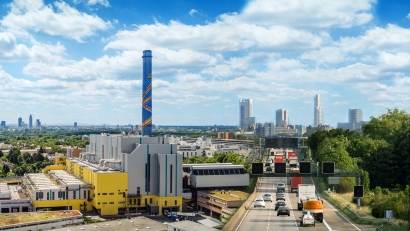
As part of the HyExperts project MH2Regio, Tractebel experts developed a strategy for a regional hydrogen infrastructure in Frankfurt/Main. The federal government supported the project with funds from the HyLand funding programme.
The focus was on the Nordweststadt waste-to-energy plant. In their study, the Tractebel experts determined a technically and economically optimal overall concept for a complete hydrogen infrastructure - from electrolysis to transport to the refuelling station.
The hydrogen produced in the process is to be made available as a green fuel for local and long-distance public transport, heavy goods, and freight transport, as well as for inland shipping. The aim of the project was also to develop standardised technical plant concepts for these user groups that can be transferred to other locations and requirements.
The Tractebel study shows that a regional hydrogen infrastructure can also be maintained in an economically attractive way from an operator's perspective. Subsidies contribute to success just as much as the operators' own concepts.
Felix Knicker, project engineer at Tractebel, summarizes that, "due to their special conditions, waste-to-energy plants have the potential to become nuclei for the development of regional hydrogen infrastructures: A large proportion of biogenic waste forms the basis for green electricity.
"Another factor is the mostly convenient location. And last but not least, the company's own refuse collection vehicles are the first consumers of the clean fuel. According to our findings, green hydrogen can be produced cheaply at waste-to-energy plants and, as a renewable fuel, contribute to the rapid decarbonisation of mobility in cities."

